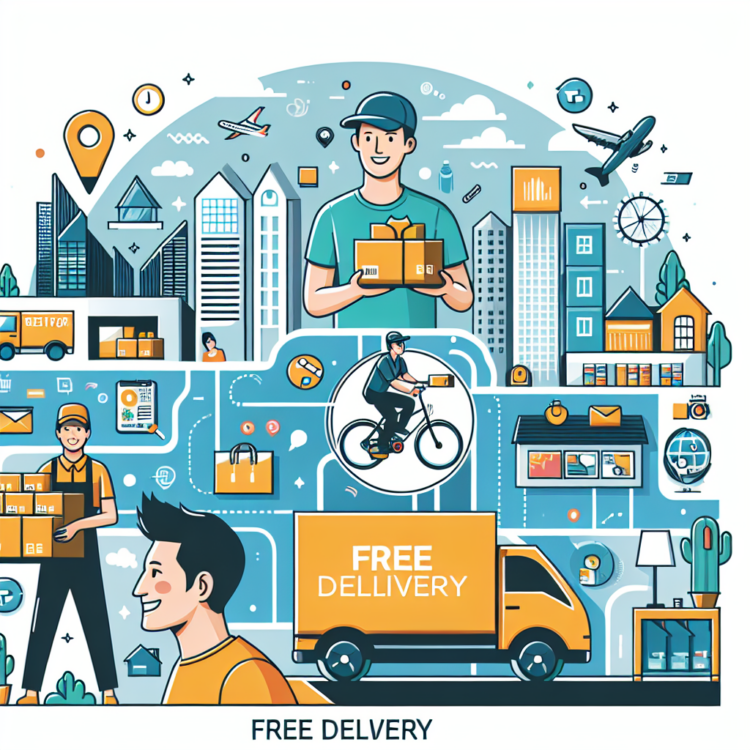AUSTIN, Texas — In March, Target became the latest mega-retailer to offer “free” delivery — for a price. For $99 a year, subscribers to Target Circle 360 can place unlimited orders without having to worry about shipping costs. Target competes with similar plans offered by Walmart and Amazon.
AUSTIN, Texas — In March, Target became the latest mega-retailer to offer “free” delivery — for a price. For $99 a year, subscribers to Target Circle 360 can place unlimited orders without having to worry about shipping costs. Target competes with similar plans offered by Walmart and Amazon.
Of course, someone ultimately must pay those delivery costs. Or do they?
According to new research from Texas McCombs, free-delivery subscription (FDS) plans come surprising close to being a free lunch. They can offer financial benefits to everyone involved: retailers such as Target and Amazon and their customers, who intend to buy many products and take advantage of free shipping.
The paper was co-authored by Anant Balakrishnan, professor of information, risk, and operations management. With Shankar Sundaresan of Rutgers University and McCombs graduate Chinmoy Mohapatra — now at Amazon — he explored whether FDS services are a good business move, compared with the traditional practice of having customers pay extra for shipping.
“We saw some articles in the business press that the actual cost of delivering goods was more than twice the amount they recover from subscription fees,” Balakrishnan says. “It begs the question: How can this be sustainable?”
For example, he says, if a company spends $8 per order on shipping costs and charges $80 for its subscription, its operations costs exceed the fee after 10 orders. What’s more, customers who subscribe to FDS place smaller orders more frequently, instead of grouping items together to save on shipping. That further increases the company’s total delivery costs.
It’s hard to get cost and revenue information from mega-retailers, who prefer to keep logistics data secret, Balakrishnan says. Instead, he used computer modeling, analyzing 3,125 different combinations of delivery operations and customer types.
On average, he found, compared with traditional paid delivery,
- A universal FDS plan, where all customers pay the same subscription fee for unlimited free deliveries, generated 33.7% more overall profit.
- A tiered plan, offering extra perks for higher fees, generated an additional 1.9% in profit over the universal plan.
The reason, he says, is that other factors increase profits enough to make up for what the retailer loses on shipping.
More purchases. “People who are subscribing to these plans buy more on average every year,” Balakrishnan says. Since they no longer pay separate shipping for each purchase, their cost per unit is lower, prompting them to purchase more. Companies benefit because they earn a profit margin on each purchase.
Locking in customers. Even heavy shoppers aren’t likely to sign up for every FDS service available. They’re likely to do more shopping with whatever retailer they’re subscribed to.
“Once you lock in a customer to a subscription, they may shift their purchases from other places, as long as the price is comparable,” Balakrishnan says.
Adding value. In addition to free shipping, retailers can add other perks, such as access to online entertainment, exclusive sales, or different return options. If the package is attractive enough, customers might be willing to pay more than they would spend for shipping alone. Amazon Prime has steadily increased its price from $79 to its current $139 a year.
But FDS plans don’t work for all retailers and all customers. Some customers may not shop enough to make the plan worthwhile. Others may shop so often that it would hurt a smaller retailer to offer them unlimited free shipping, even with a fee.
Giving customers flexible options works best, Balakrishnan says. For example, a retailer can offer a subscription fee that includes free shipping but limits it to a specific number of orders.
The biggest takeaway, Balakrishnan says, is that a mix of FDS and pay-for-delivery (PFD) options can increase business for retailers while saving money for frequent shoppers. In homage to a well-known ad campaign for American Express, he considered titling his paper, “Membership Has its Benefits.”
Now that he’s shown how combining FDS and PFD can work for retailers, he says, the next step might be to look at how they can compete within these frameworks. Other avenues to explore include getting and analyzing empirical data from companies, and studying the economics of alternative business models for last-mile delivery operations.
“I see Amazon trucks almost every day making deliveries to multiple households,” Balakrishnan says. “If many of my neighbors are Prime subscribers, and they keep ordering often, the delivery costs get amortized over multiple deliveries. So, delivery costs for Amazon may be lower. I think this is very important for us to study later.”
“Subscription Pricing for Free Delivery Services” is published in Production and Operations Management.
Journal
Production and Operations Management
Method of Research
Data/statistical analysis
Subject of Research
People
Article Title
Subscription Pricing for Free Delivery Services
Article Publication Date
14-Feb-2024




